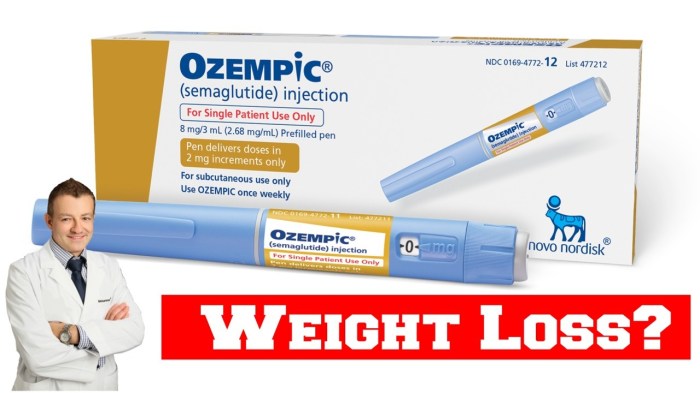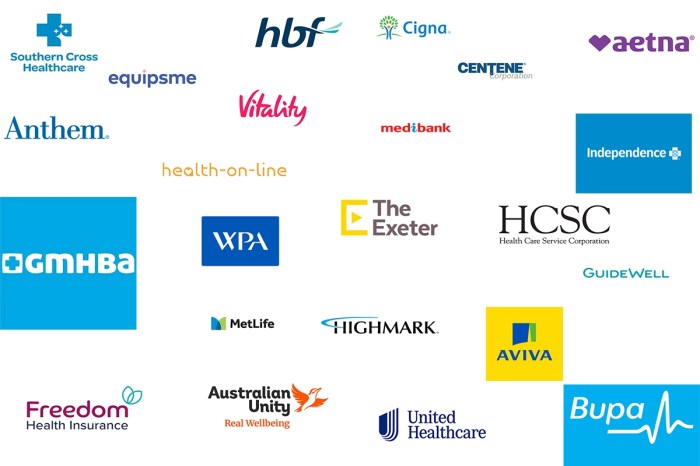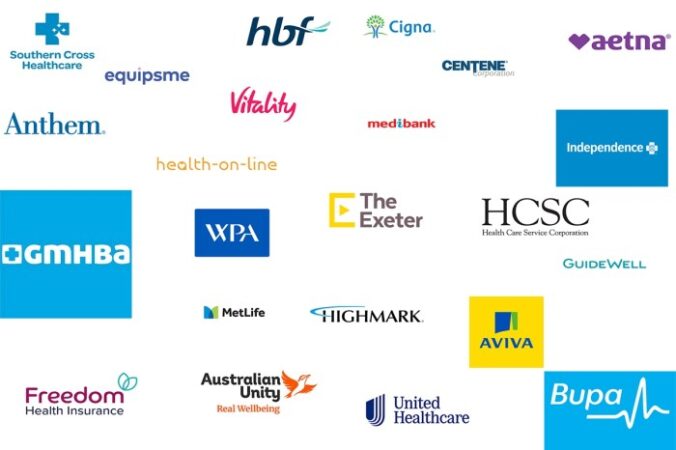
What company offers the best health insurance? It’s a question that keeps us all up at night, especially when you’re trying to navigate the wild world of premiums, deductibles, and co-pays. It’s like trying to decipher a secret code, but don’t worry, we’re here to break it down for you. We’ll guide you through the different types of plans, major insurance providers, and even offer some tips for choosing the best coverage for your unique needs.
Finding the right health insurance plan can feel like searching for a needle in a haystack. But it doesn’t have to be a total headache. This guide will equip you with the knowledge to make an informed decision, whether you’re a single millennial, a growing family, or just looking to save some serious cash. We’ll dive into the key factors to consider, compare the top providers, and even break down the cost and coverage comparisons. So, buckle up, because we’re about to make health insurance less of a mystery and more of a “you got this!” moment.
Factors to Consider When Choosing Health Insurance

Choosing the right health insurance plan is crucial for your financial well-being and peace of mind. It’s like picking the perfect outfit for a big event – you want something that fits your needs and budget, but also offers the right level of protection.
Individual Needs and Circumstances
Your health insurance needs are as unique as you are. Think of it like your favorite pizza topping – some people love pepperoni, while others prefer pineapple. The same goes for health insurance. Your personal health history, anticipated healthcare needs, and lifestyle all play a role in determining the right plan for you.
Types of Health Insurance Plans

Choosing the right health insurance plan can feel like navigating a maze. You’ve got HMOs, PPOs, EPOs, and POSs—what’s a person to do? Don’t worry, we’re here to break down the differences and help you find the plan that’s the perfect fit for your needs.
HMO, PPO, EPO, and POS Plan Differences
The world of health insurance plans can feel like a whole different language. Let’s translate these acronyms and see what they mean for you.
- HMO (Health Maintenance Organization): Think of an HMO as a closed-off community. You’ll choose a primary care physician (PCP) within the HMO network, and they act as your gatekeeper. To see specialists or get referrals, you’ll need to get a referral from your PCP. This helps keep costs down, but it can mean a bit more paperwork and coordination.
- PPO (Preferred Provider Organization): PPOs are more flexible. You can see doctors both in and out of the network, but you’ll pay more if you go outside the network. PPOs typically have higher premiums than HMOs, but you have more freedom in choosing your healthcare providers.
- EPO (Exclusive Provider Organization): EPOs are kind of a hybrid between HMOs and PPOs. Like HMOs, you need to choose a PCP within the network, and you’ll need referrals to see specialists. But, unlike HMOs, you can go outside the network for care, but you’ll pay a much higher price. EPOs are known for lower premiums than PPOs but offer less flexibility.
- POS (Point of Service): POS plans are like a blend of HMOs and PPOs, offering a bit of both worlds. You’ll have a PCP within the network, but you can also go outside the network for care, paying a higher copay. POS plans are known for their flexibility, but they can have higher premiums than HMOs.
Benefits and Drawbacks of Each Plan Type
Each plan type comes with its own set of pros and cons. Think of it like choosing your favorite superhero—each one has unique powers and weaknesses.
HMO
- Benefits:
- Typically lower premiums than other plans.
- Emphasis on preventive care.
- Drawbacks:
- Limited choice of doctors and specialists.
- Need referrals from your PCP to see specialists.
- May have to travel further for in-network care.
PPO
- Benefits:
- More flexibility in choosing doctors and specialists.
- No need for referrals to see specialists.
- Can see out-of-network providers, but at a higher cost.
- Drawbacks:
- Higher premiums than HMOs.
- May have higher deductibles and copays than HMOs.
EPO
- Benefits:
- Lower premiums than PPOs.
- Emphasis on preventive care.
- Drawbacks:
- Limited choice of doctors and specialists.
- Need referrals from your PCP to see specialists.
- High out-of-network costs.
POS
- Benefits:
- Flexibility in choosing doctors and specialists.
- Can see out-of-network providers, but at a higher cost.
- Drawbacks:
- Higher premiums than HMOs.
- May have higher deductibles and copays than HMOs.
Best Plan Types for Different Situations
Choosing the right plan depends on your unique needs. Think about your lifestyle, budget, and health situation.
Individuals
- HMO: A good choice for individuals who prioritize affordability and preventive care.
- PPO: A good choice for individuals who value flexibility and may need to see out-of-network specialists.
Families
- HMO: A good choice for families who need affordable coverage and have a good network of doctors.
- PPO: A good choice for families who value flexibility and may need to see out-of-network specialists.
Specific Health Conditions
- HMO: May be a good choice for individuals with chronic conditions who need regular care from a primary care physician.
- PPO: May be a good choice for individuals with rare or complex conditions who need access to specialists outside of their network.
Key Features Comparison Table
Let’s summarize the key features of each plan type in a handy table:
| Plan Type | Network Restrictions | Referral Requirements | Out-of-Network Coverage | Premiums | Deductibles/Copays |
|---|---|---|---|---|---|
| HMO | Strict | Required | Limited | Lowest | Lower |
| PPO | Flexible | Not Required | Covered at a higher cost | Higher | Higher |
| EPO | Strict | Required | Limited, at a very high cost | Lower than PPOs | Lower than PPOs |
| POS | Flexible | Not Required | Covered at a higher cost | Higher than HMOs | Higher than HMOs |
Major Health Insurance Providers
Choosing the right health insurance provider can be a real head-scratcher, like trying to pick the perfect outfit for a big event. You want something that fits your needs, looks good, and won’t break the bank. But unlike fashion, health insurance can have serious consequences if you choose wrong. So, let’s break down some of the big players in the game and see who’s got the best coverage.
Leading Health Insurance Providers in the United States
Knowing the major players in the health insurance game is key to making a smart choice. Here are some of the biggest names in the business, each with their own strengths and weaknesses:
- UnitedHealthcare: This giant is the biggest health insurer in the US, boasting a massive network and a wide range of plans. They’re like the Walmart of health insurance – lots of options, but maybe not the most personalized service.
- Anthem: Anthem is another heavyweight, known for its strong national presence and diverse plan offerings. They’re like the Target of health insurance – a bit more upscale than Walmart, but still with a focus on affordability.
- Cigna: Cigna is known for its focus on wellness and preventive care, offering programs that encourage healthy living. They’re like the Whole Foods of health insurance – a bit pricier, but with a focus on quality and well-being.
- Aetna: Aetna is a big player in the health insurance market, known for its strong customer service and wide network. They’re like the Nordstrom of health insurance – a bit more luxurious, with a focus on personalized attention.
- Humana: Humana specializes in Medicare plans and offers a variety of options for seniors. They’re like the senior center of health insurance – focused on the needs of the older generation.
Comparing Provider Strengths and Weaknesses
Choosing the right provider is like picking the right team for your health needs. Each company has its own strengths and weaknesses, so it’s important to consider what’s most important to you:
- Plan Availability: Some providers offer a wider range of plans than others. UnitedHealthcare and Anthem, for example, are known for their diverse plan options, while Humana focuses more on Medicare plans.
- Network Size: A large network means more doctors and hospitals to choose from. UnitedHealthcare and Anthem again have a leg up in this area, with extensive networks across the country. Cigna and Aetna are also known for their strong networks.
- Customer Satisfaction: You want a provider that’s reliable and responsive. Aetna and Cigna generally receive good customer satisfaction ratings, while UnitedHealthcare has been known for some customer service challenges.
Top 5 Health Insurance Providers, What company offers the best health insurance
To make it easier to compare, here’s a table highlighting the top 5 providers based on key metrics:
| Provider | Plan Availability | Network Size | Customer Satisfaction |
|---|---|---|---|
| UnitedHealthcare | Excellent | Excellent | Average |
| Anthem | Excellent | Excellent | Above Average |
| Cigna | Good | Good | Above Average |
| Aetna | Good | Good | Excellent |
| Humana | Excellent (Medicare) | Good | Above Average |
Cost and Coverage Comparisons

Finding the best health insurance plan involves a thorough comparison of costs and coverage across different providers. This process can be overwhelming, but with the right approach, you can make an informed decision that fits your budget and healthcare needs.
Comparing Health Insurance Quotes
Before comparing quotes, it’s crucial to understand your individual healthcare needs and budget. Once you have a clear picture of your requirements, you can start requesting quotes from different insurance providers. Most insurance companies offer online quote tools, making the process convenient and efficient.
When comparing quotes, pay attention to the following factors:
- Premium: This is the monthly cost you pay for your health insurance plan. Compare premiums across different providers and plan types.
- Deductible: This is the amount you pay out-of-pocket before your insurance coverage kicks in. A higher deductible typically means lower premiums, but you’ll pay more upfront for medical expenses.
- Co-pay: This is a fixed amount you pay for specific services, such as doctor visits or prescriptions. Compare co-pay amounts for common services.
- Co-insurance: This is a percentage of medical expenses you pay after you’ve met your deductible. A higher co-insurance percentage means you’ll pay more for medical expenses.
- Out-of-pocket maximum: This is the maximum amount you’ll pay for medical expenses in a year. Once you reach this limit, your insurance will cover 100% of your remaining medical expenses.
Analyzing Coverage Details
Beyond the cost, it’s essential to analyze the coverage details of each plan. This includes understanding what services are covered, what limitations or exclusions apply, and how the plan handles out-of-network care.
Common Coverage Exclusions and Limitations
Most health insurance plans have limitations and exclusions. These may include:
- Pre-existing conditions: Some plans may exclude coverage for conditions you had before enrolling in the plan.
- Experimental treatments: Many plans don’t cover experimental treatments or procedures that haven’t been widely accepted.
- Cosmetic procedures: Most plans don’t cover cosmetic procedures that aren’t medically necessary.
- Out-of-network care: Plans may have higher co-pays or co-insurance for out-of-network providers. You might even need to pay the entire bill upfront and seek reimbursement from your insurance company.
Cost and Coverage Comparison Table
To illustrate the differences in costs and coverage, here’s a simplified table comparing three different health insurance plans:
| Plan | Premium (Monthly) | Deductible | Co-pay (Doctor Visit) | Co-insurance | Out-of-pocket Maximum | Coverage Exclusions |
|—|—|—|—|—|—|—|
| Plan A | $250 | $1,000 | $25 | 20% | $5,000 | Pre-existing conditions, experimental treatments, cosmetic procedures |
| Plan B | $300 | $500 | $30 | 15% | $4,000 | Pre-existing conditions, experimental treatments, cosmetic procedures |
| Plan C | $350 | $250 | $40 | 10% | $3,000 | Pre-existing conditions, experimental treatments, cosmetic procedures |
Remember, this is a simplified example. Actual plans may have more complex coverage details.
Cost-Saving Strategies
Here are some strategies to potentially save on health insurance costs:
- Negotiate with your provider: Some providers offer discounts for paying your premiums annually or for enrolling in a plan with a higher deductible.
- Consider a health savings account (HSA): HSAs allow you to save pre-tax dollars for healthcare expenses. You can use the funds for eligible medical expenses, including deductibles, co-pays, and prescription drugs.
- Shop around: Don’t settle for the first quote you receive. Compare quotes from multiple providers and plan types to find the best deal.
Tips for Choosing the Best Health Insurance
Navigating the world of health insurance can feel like trying to decipher a foreign language. But don’t worry, with a little knowledge and a sprinkle of savvy, you can find a plan that fits your needs like a glove.
Reading Policy Documents
Understanding your health insurance policy is crucial. It’s like reading the fine print on a concert ticket – you need to know what you’re getting into. Here’s the deal:
- Coverage Details: Pay attention to the specifics of your coverage. What services are covered? What are the deductibles and copayments? Are there any limitations or exclusions?
- Network: Knowing which doctors and hospitals are in your plan’s network is key. You don’t want to be stuck with a hefty bill for seeing an out-of-network provider.
- Prescription Drug Coverage: If you take medications regularly, make sure your plan covers them. Check the formulary, which lists the drugs covered by the plan.
Negotiating Premiums
You might think that health insurance premiums are set in stone, but that’s not always the case. Here are a few ways to potentially lower your monthly costs:
- Shop Around: Don’t settle for the first plan you see. Compare quotes from different insurers to see who offers the best deal.
- Bundle Coverage: Many insurers offer discounts if you bundle your health insurance with other types of insurance, like car or home insurance.
- Ask About Discounts: Inquire about any available discounts, such as those for good health, being a non-smoker, or belonging to certain organizations.
Cost-Saving Options
There are ways to save money on your health insurance premiums and out-of-pocket costs.
- Health Savings Account (HSA): An HSA allows you to save pre-tax dollars for healthcare expenses. The money in your HSA can be used to pay for deductibles, copayments, and other medical expenses.
- Flexible Spending Account (FSA): Similar to an HSA, an FSA lets you set aside pre-tax dollars for healthcare expenses. However, unlike an HSA, any unused funds at the end of the year are forfeited.
- Preventive Care: Taking advantage of preventive care services, like screenings and immunizations, can help keep you healthy and prevent costly medical issues down the road.
Health Insurance Brokers
These folks are like your personal health insurance matchmakers. They can help you navigate the complexities of the insurance market and find a plan that meets your needs.
- Expert Advice: Brokers have in-depth knowledge of different insurance plans and can provide you with personalized recommendations.
- Time-Saving: Brokers can do the legwork for you, comparing quotes and helping you choose the best plan.
- Negotiation Power: Brokers may be able to negotiate lower premiums or better coverage on your behalf.
Conclusion: What Company Offers The Best Health Insurance
Choosing the right health insurance is like finding your perfect match on a dating app – it takes time, research, and a little bit of luck. But don’t stress, we’ve got you covered. Armed with the information we’ve shared, you can confidently compare plans, understand the ins and outs of coverage, and ultimately, find a health insurance plan that fits your needs and budget like a glove. So, go forth, conquer the health insurance jungle, and stay healthy!
User Queries
What are some common health insurance exclusions?
Common exclusions can include pre-existing conditions, cosmetic procedures, experimental treatments, and certain types of mental health care. It’s essential to read the fine print to understand what’s covered and what’s not.
How often can I change my health insurance plan?
You can typically change your health insurance plan during open enrollment periods, which usually occur annually. However, you may also be able to make changes due to life events, such as marriage, birth, or job loss.
What is a health insurance broker, and how can they help me?
A health insurance broker acts as an intermediary between you and insurance companies. They can help you compare plans, understand your options, and find the best coverage for your needs. They can also negotiate rates and assist with the enrollment process.
How can I save money on my health insurance premiums?
There are a few ways to save money on premiums. You can explore different plan options, shop around for quotes, consider a higher deductible, or take advantage of employer-sponsored plans.


